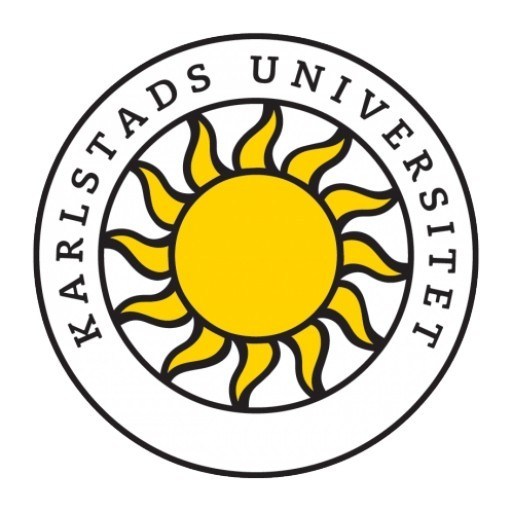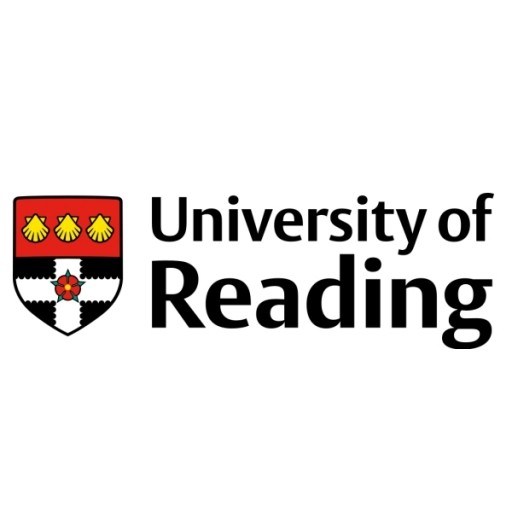Photos of university
The Biomedical Engineering with Healthcare Technology Management program at City University offers a comprehensive interdisciplinary education designed to prepare students for the rapidly evolving field of healthcare technology. This program integrates principles of engineering, biology, and medicine to develop innovative solutions for medical device design, healthcare systems, and clinical applications. Students will gain a solid foundation in biomedical engineering, including anatomy, physiology, biomaterials, and electronic systems, alongside specialized training in healthcare technology management, focusing on the maintenance, regulation, and management of medical equipment within healthcare environments.
Throughout the course, students will engage in hands-on laboratory work, design projects, and real-world case studies to develop critical problem-solving skills essential for the development and lifecycle management of medical devices. The program emphasizes the importance of safety, regulatory compliance, and quality assurance in the healthcare sector, preparing graduates to effectively oversee medical equipment in hospitals, clinics, and biomedical firms. Additionally, students will learn about healthcare informatics, health data management, and the integration of advanced technologies such as IoT and telemedicine into healthcare systems.
The curriculum is designed in collaboration with industry partners and healthcare providers, ensuring that students are equipped with the latest knowledge and skills required by employers. Graduates of this program will be well-positioned for careers in biomedical engineering design, healthcare technology management, clinical engineering, technical consultancy, and research and development. The City University’s emphasis on practical experience, combined with a strong theoretical foundation, aims to produce competent professionals capable of improving patient care through innovative medical technologies and effective management practices. This program ultimately prepares students to contribute meaningfully to the advancement of healthcare infrastructure, enhance medical device safety, and support technological innovation in the healthcare industry worldwide.
The Bachelor of Science in Biomedical Engineering with Healthcare Technology Management at City University offers a comprehensive and multidisciplinary curriculum designed to prepare students for a dynamic career at the intersection of healthcare, engineering, and technology. The program integrates foundational knowledge in engineering principles, biological sciences, and medical technologies to equip graduates with the skills necessary to develop, evaluate, and manage medical devices and healthcare systems effectively.
Throughout the course of study, students are introduced to core topics such as biomedical instrumentation, medical electronics, systems physiology, and biomaterials, providing a solid understanding of how engineering concepts can be applied to solve medical challenges. The program also emphasizes healthcare technology management, covering areas like hospital equipment maintenance, biomedical equipment management, healthcare information systems, and regulatory standards. This ensures that graduates are not only capable of designing and improving medical devices but are also prepared to oversee their safe and effective operation within healthcare environments.
Practical skills are a key focus of the program, with numerous laboratory sessions, workshops, and industry projects that foster hands-on experience. Students have opportunities to collaborate with medical professionals and industry partners through internships and research projects, gaining insights into real-world healthcare settings. In addition, the program offers modules on cybersecurity for medical devices, emerging healthcare technologies, and quality assurance, preparing students for the evolving landscape of medical technology and patient safety.
The curriculum is designed to develop critical thinking, problem-solving, and project management skills, enabling graduates to work in multidisciplinary teams, innovate new solutions, and adapt to technological advancements. Graduates of this program are well-equipped for careers in medical device companies, hospitals, healthcare consultancy firms, and regulatory agencies, or to pursue further studies in biomedical engineering or healthcare management. The program's ultimate goal is to produce highly skilled professionals committed to improving healthcare quality and accessibility through technological innovation and effective technology management.
The Bachelor of Science in Biomedical Engineering with Healthcare Technology Management at City University requires applicants to possess a high school diploma or equivalent qualification, with a strong foundation in mathematics, physics, and chemistry. Prospective students should have achieved satisfactory grades in these subjects, demonstrating their aptitude for engineering and scientific studies. The program emphasizes interdisciplinary knowledge, integrating principles from engineering, biology, and healthcare to prepare graduates for careers in medical device design, hospital equipment management, and healthcare systems optimization.
Admission may consider relevant extracurricular activities, internships, or work experience in biomedical engineering or healthcare technology sectors. English language proficiency is necessary for non-native speakers, typically demonstrated through standardized tests such as IELTS or TOEFL, unless previous education was conducted in English.
Once admitted, students are expected to complete foundational coursework in mathematics, physics, biology, and computer programming during the first year. This prepares them for more specialized modules in biomedical instrumentation, signal processing, biomaterials, and healthcare systems management. The curriculum includes practical laboratory sessions and project-based learning, fostering hands-on skills essential for industry readiness.
Throughout the program, students are encouraged to participate in industry placements, internships, or cooperative education programs to gain real-world experience in clinical settings, medical device companies, or healthcare organizations. Additionally, the program emphasizes developing professional skills, including ethical considerations in biomedical engineering, regulatory requirements, and effective communication with healthcare professionals.
Graduates of the program will be equipped with technical expertise and problem-solving abilities to innovate and improve biomedical devices and healthcare delivery systems. They will also possess management skills necessary for overseeing hospital equipment maintenance, technological upgrades, and compliance with health regulations. The program aims to produce industry-ready engineers capable of contributing to technological advancements and improving patient care through effective healthcare technology management.
Overall, the program requires students to complete a minimum of 180 academic credits, including core courses, electives, laboratory practicals, and a final year project. Continued assessment through exams, coursework, laboratory reports, and presentations ensures comprehensive evaluation of student progress. The educational approach combines theoretical knowledge with practical application, fostering a multidisciplinary understanding vital for success in the healthcare technology sector.
tuition fees and funding options for the Biomedical Engineering with Healthcare Technology Management program at City University are designed to accommodate a diverse student body and promote accessible higher education. the university's fee structure is competitive within the region, reflecting the high quality of research and practical training provided. international students are required to pay different rates compared to domestic students, with detailed figures available on the university's official website. students have several avenues to finance their studies, including government grants, scholarships, and bursaries specifically aimed at engineering and technology disciplines.
City University offers merit-based scholarships for outstanding applicants, which can significantly reduce the financial burden. these scholarships are awarded based on academic achievement, extracurricular involvement, and potential contribution to the university community. in addition, need-based grants are available to students demonstrating financial hardship, ensuring that talented individuals from diverse backgrounds can pursue their education without undue financial stress. students are also encouraged to explore external funding sources, such as industry-sponsored scholarships and government loan schemes.
Part-time work opportunities on campus provide additional income sources to help cover living expenses and part of the tuition fees. the university's career services assist students in finding suitable part-time positions within university facilities or local partner organizations. co-financing schemes, including student loan programs, are accessible upon application, with clear guidelines on repayment terms and eligibility criteria issued by relevant authorities. students are advised to consult the financial aid office early in their studies to maximize available funding options and to understand the application procedures and deadlines.
Moreover, the university periodically updates its funding packages and introduces new initiatives to support students financially, reflecting its commitment to fostering innovation and excellence in healthcare technology education. prospective students are encouraged to check the latest information on the City University official website or contact the admissions office directly to receive tailored advice on financing their studies. overall, the financial support ecosystem at City University aims to provide comprehensive assistance to enable students to complete their biomedical engineering studies with minimal financial obstacles and to focus on their academic and professional development.
The Biomedical Engineering with Healthcare Technology Management program at City University is designed to provide students with a comprehensive understanding of the principles and applications of biomedical engineering integrated with healthcare technology management. The curriculum combines core engineering concepts such as electronics, biomechanics, and bioinformatics with specialized training in the management, maintenance, and operational optimization of medical equipment and healthcare systems. Students gain practical skills through laboratory work, projects, and industrial placements, preparing them for careers in hospitals, medical device industries, and healthcare technology management organizations. The program aims to produce graduates capable of designing innovative biomedical devices, improving healthcare delivery, and ensuring the proper functioning and safety of medical technologies. It emphasizes interdisciplinary learning, combining engineering, medicine, and management, to equip students with both technical expertise and understanding of healthcare environments. Throughout the course, students explore topics such as medical instrumentation, signal processing, healthcare systems, regulatory considerations, and quality assurance. The program collaborates with industry partners, providing opportunities for internships and real-world problem solving. Graduates are well-prepared for roles such as biomedical engineers, clinical technologists, healthcare technology managers, and research scientists. The program also offers pathways for further study, including MSc and PhD research options in biomedical engineering and related fields. The course is structured to meet the evolving needs of modern healthcare systems, emphasizing innovation, safety, and efficiency in medical technology management. With a diverse faculty experienced in academia and industry, students benefit from expert instruction and mentorship. The program underscores the importance of ethical considerations, patient safety, and continuous professional development. Overall, this program aims to produce highly skilled professionals who can contribute to advancements in healthcare technology and improve patient outcomes worldwide, aligning with City University’s commitment to industry-relevant education and research excellence.









